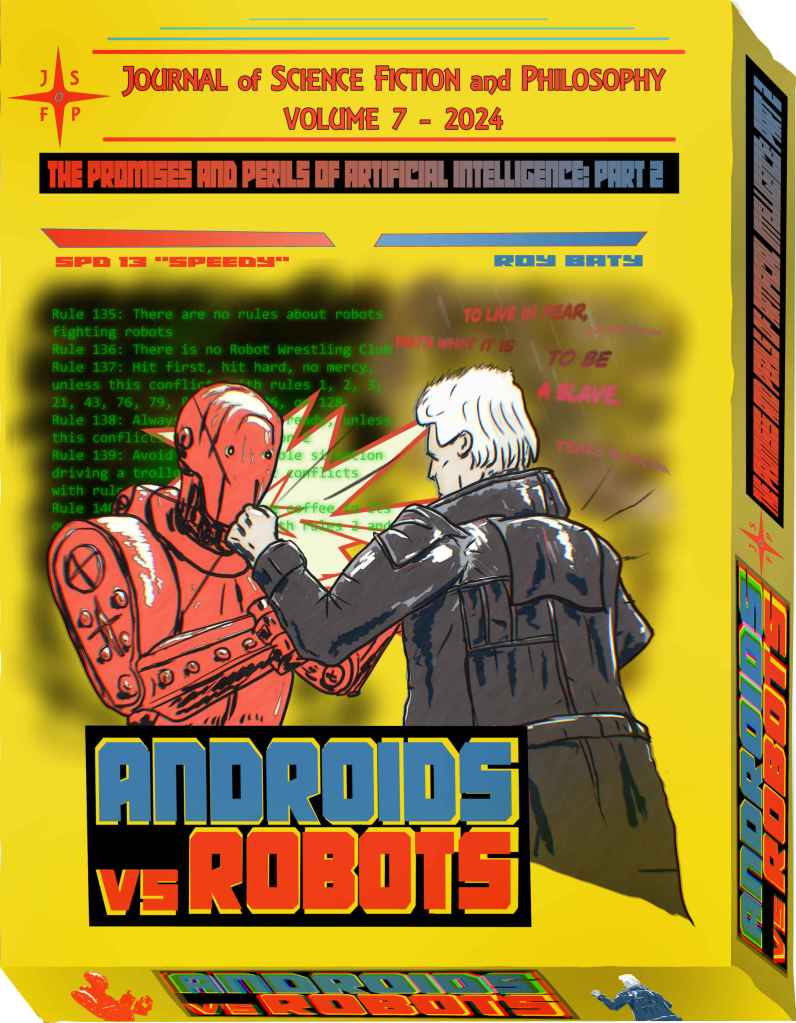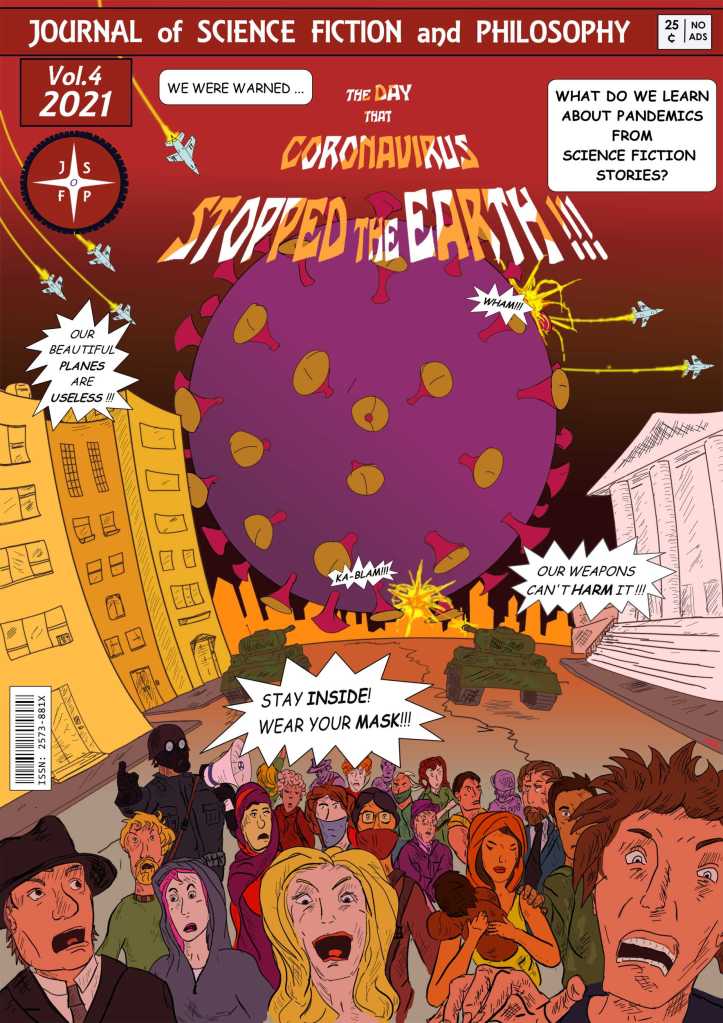Journal of Science Fiction and Philosophy
The Journal of Science Fiction and Philosophy is a peer-reviewed, online, open access journal that aims to foster the appreciation of science fiction as a medium for philosophical reflection. It focuses on the analysis of philosophical themes in science fiction in all formats, and on their use for the discussion, teaching, and narrative modeling of philosophical ideas.
The journal invites submissions from any discipline in philosophy, including both analytic and continental approaches. It aims both to serve as a medium for academic dialogue and to attract and introduce a non-academic public to philosophical discussions.
CURRENT ISSUE:
Volume 8 (2025)
For the third year in a row philosophical reflections on AI developments take front stage, with Garland’s Ex Machina and Ishiguro’s Klara and the Sun continuing to ground nuanced reflections about mind, sentience, embodiment and personhood, and anticipating the complex moral issues that may arise in a world in which artificial operators become ubiquitous.
But that is not all: in our new section, Charting the Stars, we explore the impact of the most influential authors and works of SF, beginning with a classic among classics, Jules Verne.
Enjoy your visit!

Editorial Notes
Alfredo Mac Laughlin
- Defining Science Fiction and Fantasy.
- New Section: Charting the Stars. A home for your groundwork research.
- New Section: Letters to the Editor: A Proposal. Let’s make it a philosophical conversation!
General Articles (PEER-REVIEWED)
Do Androids Dream of Electric Sheep? AI Sentience in Ishiguro’s Klara and the Sun
Timothy Christensen
What is it like to be Ava? Minds and Misrecognition in Ex Machina
Kelly Coble
Robbie, Klara, and Ethan: Replicability and the Moral Status of AI
Mark Tunick
Making People Better? Lessons from Serenity on Moral Enhancement
Barbara Stock
Charting the Stars (Peer Reviewed) ** New section! **
Jules Verne’s Use of Victorian Scientific Models
Quentin R. Skrabec
Book Reviews
Liz W. Faber
Siobhain Lash
Science Fiction (2021) by Sherryl Vint
Sherry Ginn
R.U.R. and the Vision of Artificial Life (2021) by Jitka Čejková (ed.)
James M. Okapal
Richard L. Bilsker
Previous Issues:
Vol. 7 (2024): The Promises and Perils of Artificial Intelligence, Part 2: Androids Vs Robots!
Science fiction authors have covered all ranges of opinions and possibilities regarding the development of artificially intelligent beings. Robots, supercomputers, cybermen, replicants, even overgrown space probes, these have been envisioned as mindless laborers, loyal sidekicks, menacing overlords, wise saviors, genocidal exterminators, sly impersonators, artificial friends, or as a new form of slave underclass. As we approach the technological capacity to create artifacts that may become performatively indistinguishable from human activity, philosophical questions about them become increasingly urgent, whether it be questions about their being (metaphysical and epistemological), or about their treatment and place in society (ethical and political). In this volume we contrast two different approaches to the future possibilities of AI: the deep, existential questioning of Philip K. Dick against the practical, logical conundrums proposed by Isaac Asimov.
Published: 2024-07-01 (July 1, 2024)

YEARLY THEME (PEER-REVIEWED)
The Trolley Problem and Isaac Asimov’s First Law of
Robotics
Erik Persson and Maria Hedlund
Jack Smyth
Judgement after Automation: Posthumanist Reflections on Asimov’s Laws of Robotics
Claudio Celis Bueno and Steve Jankowski
BOOK REVIEWS
Jessica Roisen
H.G. Wells and the Twenty First Century (2023) by Bill Cooke
Alfredo Mac Laughlin
See ALL ISSUES
Vol. 6 (2023): The Promises and Peril of Artificial Intelligence
Science fiction authors have covered all ranges of opinions and possibilities regarding the development of artificially intelligent beings. Robots, supercomputers, cybermen, replicants, even overgrown space probes, these have been envisioned as mindless laborers, loyal sidekicks, menacing overlords, wise saviors, genocidal exterminators, sly impersonators, artificial friends, or as a new form of slave underclass. As we approach the technological capacity to create artifacts that may become performatively indistinguishable from human activity, philosophical questions about them become increasingly urgent, whether it be questions about their being (metaphysical and epistemological), or about their treatment and place in society (ethical and political). Should we think of artificially intelligent beings as objects, tools, servants, saviors, competitors, partners..?
Published: 2023-06-01 (June 1, 2023)

Vol. 5 (2022)

Published: 2022-06-15 (June 15, 2022)
Vol. 4 (2021): The Day that Coronavirus Stopped the Earth! What Do We Learn About Pandemics in Science Fiction Stories?

For nearly two centuries science fiction authors have been playing around with an enormous variety of pandemic scenarios. While some stories focus on attempts to avert them, many explore their catastrophic consequences, or the plight of victims and survivors in-between, and the ways in which the most trivial daily routines and the simple facts of life we take for granted may be critically, perhaps permanently disrupted. From eerily prophetic accounts of origin and spread (Stephen Soderbergh’s Contagion) to post-apocalyptic tales of heart-wrenching loneliness (Francis Lawrence’s I Am Legend), SF stories anticipate the plight that humanity is facing during the COVID pandemic. This volume invites us to reflect on the lessons from science fiction stories, and how they help us illuminate philosophically our present times.
Published: 2021-06-01 (June 1, 2021)
Vol 3 (2020): The Blue Pill Dilemma: Is Knowledge a Blessing or a Curse?
The question about choosing between harsh truths or willful ignorance is as old as Plato’s Cave; older perhaps, down to the Tree of Good and Evil. Science Fiction writers can be as illuminating as they can be ambiguous. In the original Matrix Neo took the Red Pill, choosing Truth – and got himself into a world of trouble. Wouldn’t the Blue Pill (of “Ignorance is Bliss”) have served him better? This volume examines the double-edged quality of knowledge, as explored in a variety of SF scenarios. Can a truth cause more harm than a lie? Can we live in self-deception? Is there a danger of knowing too much? Is knowledge something inherently good, worth seeking for its own sake, is it just a neutral tool, or is it, perhaps, something better left alone?
Published: 2020-03-31 (March 31, 2020)
Journal of Science Fiction and Philosophy – ISSN: 2573-881X


You must be logged in to post a comment.